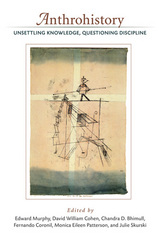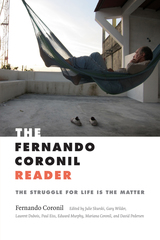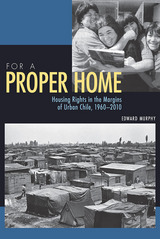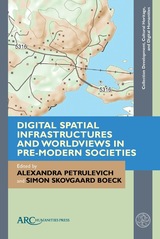
Stretching back to the 1950s, interdisciplinary work between anthropology and history has taken diverse expressions. Yet it has developed with more coherence since the 1980s, largely in response to the declining promise of global modernity and the rise of poststructuralism and deconstructionism. Through a critical and contemporary engagement with this wave of scholarship, this volume challenges readers to think of work at the crossroads of anthropology and history as transdisciplinary and anthrohistorical, moving beyond a partial integration of the disciplines as it critically evaluates their assumptions and trajectories.
This approach permits Anthrohistory: Unsettling Knowledge, Questioning Discipline to present a broader perspective that unsettles the constraints of existing academic practice. The volume does not offer a blueprint for fulfilling this goal, but rather a variety of positions taken by anthrohistorians who work in diverse contexts. Adopting an innovative and accessible style, Anthrohistory opens a provocative window into broader questions of interdisciplinarity, representation, epistemology, methodology, and social commitment.
Edward Murphy is Assistant Professor of History and Global Urban Studies at Michigan State University.
David William Cohen is Professor Emeritus of Anthropology and Professor Emeritus of History, College of Literature, Science, and the Arts, University of Michigan.
Chandra D. Bhimull is Assistant Professor in the Department of Anthropology and the African-American Studies Program at Colby College.
Fernando Coronil is Presidential Professor at the Graduate Center at the City University of New York and Professor Emeritus of Anthropology and Professor Emeritus of History, College of Literature, Science, and the Arts, University of Michigan.
Monica Eileen Patterson is Postdoctoral Fellow at the Centre for Ethnographic Research and Exhibition in the Aftermath of Violence at Concordia University in Montreal.
Julie Skurski is Distinguished Lecturer in Anthropology at the Graduate Center at the City University of New York.
Cover art: Paul Klee, Tightrope Walker (1923), © Artists Rights Society (ARS), New York / VG Bild-Kunst, Bonn


In analyzing the causes and consequences of this struggle, Murphy reveals a crucial connection between homeownership and understandings of proper behavior and governance. This link between property and propriety has been at the root of a powerful, contested urban politics central to both social activism and urban development projects. Through projects of reform, revolution, and reaction, a right to housing and homeownership has been a significant symbol of governmental benevolence and poverty reduction. Under Pinochet’s neoliberalism, subsidized housing and slum eradication programs displaced many squatters, while awarding them homes of their own. This process, in addition to ongoing forms of activism, has permitted the vast majority of squatters to live in homes with property titles, a momentous change of the past half-century.
This triumph is tempered by the fact that today the urban poor struggle with high levels of unemployment and underemployment, significant debt, and a profoundly segregated and hostile urban landscape. They also find it more difficult to mobilize than in the past, and as homeowners they can no longer rally around the cause of housing rights.
Citing cultural theorists from Marx to Foucault, Murphy directly links the importance of home ownership and property rights among Santiago’s urban poor to definitions of Chilean citizenship and propriety. He explores how the deeply embedded liberal belief system of individual property ownership has shaped political, social, and physical landscapes in the city. His approach sheds light on the role that social movements and the gendered contours of home life have played in the making of citizenship. It also illuminates processes through which squatters have received legally sanctioned homes of their own, a phenomenon of critical importance in cities throughout much of Latin America and the Global South.
READERS
Browse our collection.
PUBLISHERS
See BiblioVault's publisher services.
STUDENT SERVICES
Files for college accessibility offices.
UChicago Accessibility Resources
home | accessibility | search | about | contact us
BiblioVault ® 2001 - 2024
The University of Chicago Press









